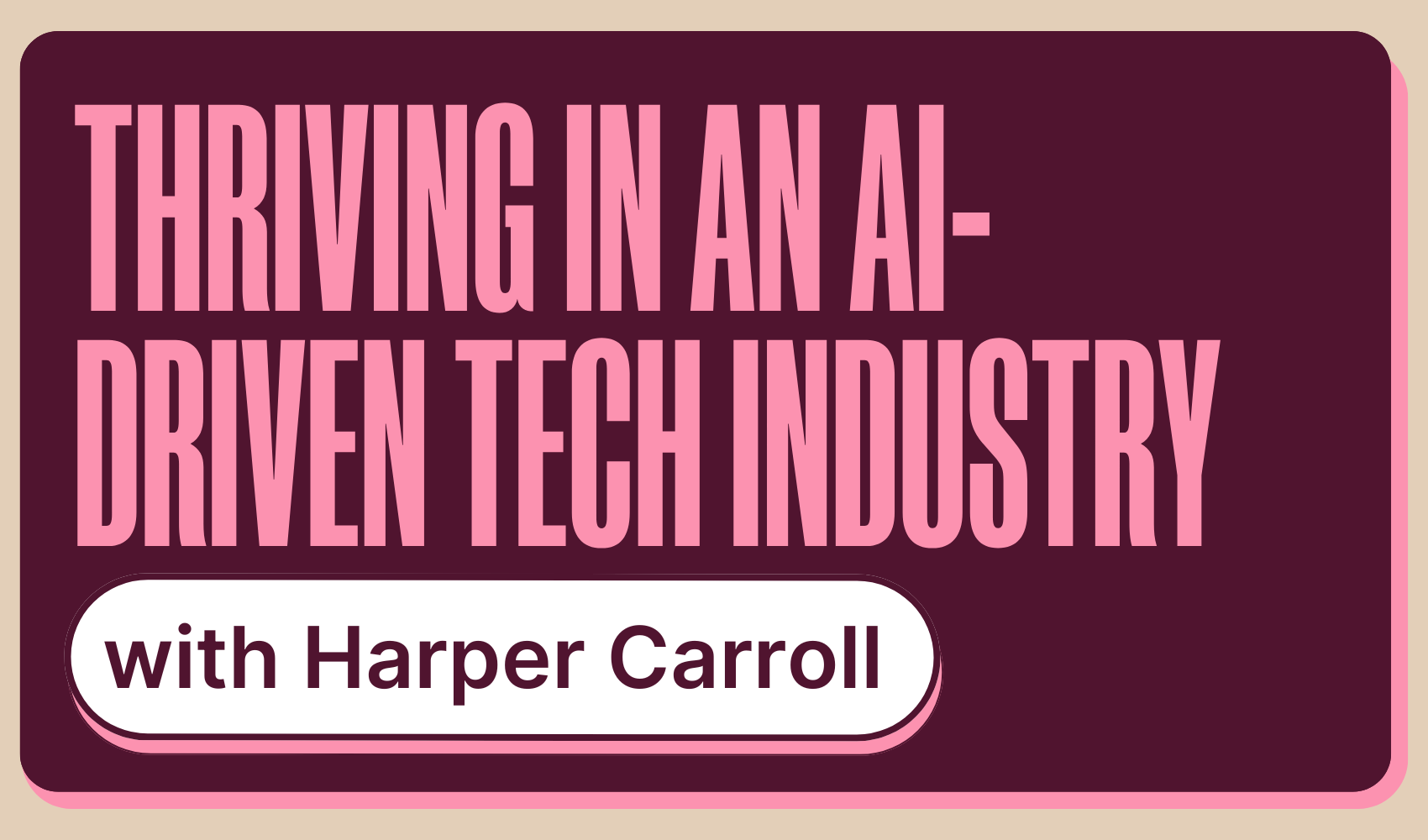The Artificial intelligence market is projected to reach $1,339 billion by 2030, transforming the way we work, create, and innovate. AI isn’t just here to stay; it’s reshaping the tech industry.
So, as a young tech professional or soon-to-be tech professional, what do you need to know?
We sat down with AI educator and expert Harper Carroll to break down the biggest misconceptions, share insights on integrating AI into tech careers, and provide practical tips to ensure you thrive in an AI-driven world.
Demystifying AI: What You Need to Know
Before you can thrive in an AI-driven tech industry, you need to understand what AI is and isn’t. Let’s talk about misconceptions.
Misconception #1: LLMs are all that AI is.
AI isn’t just limited to large language models (LLMs) like ChatGPT and image generators like MidJourney. AI is utilized in many ways, from predicting earthquakes to making it easier to detect cancer cells.
Harper highlights how AI is making a difference in cancer research:
“Given an input and an output, AI is able to see the in-between process. Given the input of a cell that is cancerous and the output of a cell that isn’t cancerous, AI is able to see what the features are that make the cancer cell transform.”
These are just some of the larger-scale uses of AI. Some smaller things that some of you may use every day utilize AI, including Google (not just in search, but also in instant translation processes), Duolingo (many aspects of their learning experience are based in AI), and Spotify (and not just the personalized DJ, but other recommendations for you as well).
Misconception #2: AI is a Recent Development
AI has been around much longer than people realize, powering Google’s ranking algorithms, navigation systems, and more.
The first chatbot, named ELIZA, was brought to life in 1966 by researchers at MIT and was programmed to respond to questions like a psychotherapist would. In the 90s, we had IBM’s Deep Blue defeat world-champion chess grandmasters.
And these are just the tip of the iceberg. AI has been in the background for many years, but now it’s taking the driver’s seat. While it feels brand new to many of us, AI has been a tool and research topic for decades.
Misconception #3: AI Stifles Creativity
AI won’t hamper creativity; instead, it’s enabling more people to pursue creative projects. “I just think there will be many more entrepreneurs and people who are following their curiosity or their creativity in a way that wasn’t possible before because it was too resource-intensive to be able to follow the thing that you want to do or are curious about,” Harper says about creative pursuits.
Many fear AI will replace creativity, but the reality is the opposite. AI is becoming a powerful tool for creative professionals. From brainstorming to research, AI can help reduce the time it takes to do preparatory work for creative ideas and more time doing what you love.
Taking Action
Knowing what AI isn’t is just the first step. Let’s talk about what you can do to prepare for AI in the workplace. When asked about the future of AI in tech, Harper says, “Expect change and be ready to adapt because as AI gets smarter and smarter, it’s going to cause this point where just the technology in our world just advances quickly.”
Sometimes, it may feel like AI is just running away from you, but just take it day by day, according to Harper. Expect and embrace rapid change while maintaining adaptability and enthusiasm for new developments.
Learning AI
If you want to thrive in an AI-driven industry, you don’t need to become an AI engineer, but you do need to understand how AI works and how to apply it in your role. Harper suggests:
- Learn the basics: Take an introductory course on AI fundamentals or check out some of Harper’s videos on understanding AI.
- Follow your curiosity: Experiment with AI tools in your current projects—whether it’s code, design, or data analysis.
- Explore AI applications: Look at how AI is transforming your field, from automating tasks to enhancing decision-making.
AI is here, and it’s transforming tech. But instead of fearing it, the key to thriving is to embrace AI as a tool that enhances your skills and career. Stay curious, stay adaptable, and make AI work for you. The future of tech isn’t just AI-powered; it’s AI-enhanced, and that means more opportunities for those who are ready.
